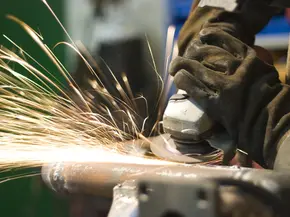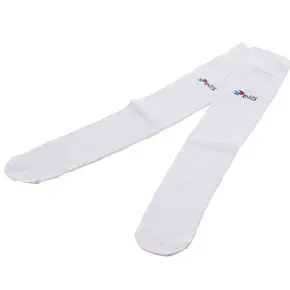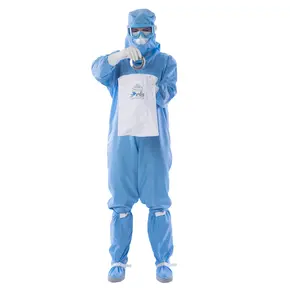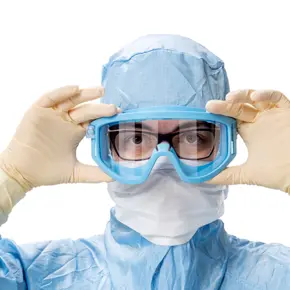GMP Annex 1 is updated: are you compliant?
Annex 1 Origin
Good Manufacturing Practices (GMP) are the practices required to comply with guidelines recommended by the agencies that control the authorisation and licensing of the manufacture and sale of food and beverages, cosmetics, pharmaceuticals, food supplements and medical devices.
These guidelines provide the minimum requirements that a manufacturer must meet to ensure that its products are of consistently high quality from batch to batch for their intended use.
This GMP guide applies to the manufacture of active ingredients for human and veterinary medicinal products. It applies to the manufacture of sterile APIs only up to the point immediately preceding sterilisation. Sterilisation and aseptic processing of sterile APIs are not covered, but must be carried out in accordance with the principles and guidelines of GMP as defined in national legislation and interpreted in the GMP Guide, including its Annex 1.
The original version of Annex 1 was partially revised in 1993, 2003 and 2007. There has never been a complete revision, although there have been significant changes in technology, regulations and GMP since then through the adoption of ICH* Guidelines Q9 (Quality Risk Management) and Q10 (Pharmaceutical Quality System). The revised Annex 1 of the Directive will clarify the extent to which Q9 and Q10 should be followed in the design and implementation of facilities, equipment and processes for the manufacture of sterile medicinal products.
The Annex was release in August 2022 and you have until the 25th of August 2023 to be compliant. Our Cleanroom experts can help you achieve compliance!
Annex 1 Impacts
What does this revision of Annex 1 now mean for cleanroom items, cleaning systems in controlled environments and aseptic cleanrooms?
In its new version, Annex 1 stipulates new recommendations according to the classification of your area. Grade A / B: Grade A represents the critical area for high-risk operations or for making aseptic connections by providing initial air protection. Its background, Grade B, represents its preparation area.
In these areas, the revision of Annex 1 now stipulates that it is necessary to have a dedicated garment worn under a sterilised suit.
- Sterile headgear must enclose all hair (including facial hair)
- Sterile face masks
- Sterile eye coverings such as goggles
- Sterilised, powder-free rubber or plastic gloves
- Sterilised footwear, such as overboots, clogs and shoes
- Dedicated socks must be used
Grade C / D: cleanrooms used for less critical stages in the manufacture of aseptically filled sterile products, but may be used for the preparation/filling of terminally sterilised products.
- Hair, beards and moustaches should be covered.
- Operators must wear single or two-piece trousers and high collar tunics (in grade C) and general properly
- Disinfected shoes or overshoes
- Dedicated socks must be used in Grade C
Elis Cleanroom supports you in your compliance and offers you the right products for your needs.
Recommended Accessories
In addition to the new recommended items according to the classification level of your cleanroom, the revision of Annex 1 also provides details on additional recommended accessories and cleaning procedures.
- Cover: for sterile and/or disinfected materials as machinery parts, tanks cannisters, hoppers, trillers, trolleys …, equipment, components and all items that are required in aseptic areas but also for items that cannot be sterilised, an effective and "valid" disinfection and transfer process must be in place. All these items, once disinfected or sterilised, should be protected to prevent recontamination. Our covers, tailor-made to your needs, allow you to protect your items against recontamination and can be adapted to any type of machine and shape.
- Autoclave bags: For sterile items that are not used immediately after sterilisation, they must now be stored using appropriate sealed packaging (i.e. Chapter 8. Paragraph 46). The objective is using a suitable protection to prevent recontamination. Our autoclavable bags are also tailor-made and reusable. Made of fabric, they will not tear when your equipment is placed in them, even if it is sharp.
Our Products
Our Expertise
Chapter 7. Paragraph 17 of the Annex 1 states that “Reusable clean area clothing should be cleaned in a laundry facility adequately segregated from production operations, using a qualified process ensuring that the clothing is not damaged and/or contaminated by fibres or particles during the repeated laundry process. Laundry facilities used should not introduce risk of contamination or cross-contamination […] After washing and before packing, garments should be visually inspected for damage and visual cleanliness. The garment management processes should be evaluated and determined as part of the garment qualification programme and should include a maximum number of laundry and sterilisation cycles”.
At Elis, our specialist cleanroom laundries all have a Helmke drum, (see the video below), which will allow particle counting of each batch processed, and they carry out an additional visual inspection on each item, allowing us to comply with Annex 1.
Furthermore, our processes are validated, and we already offer a maximum number of washes per garment depending on the fabric and the required type of washing and/or sterilisation.
Moreover, our Elis cleanroom laundries have their own autoclaves in every country, which allows us to perform in-house sterilisations and makes us independent from third parties. All our sterilisation processes are properly validated.
And of course, we only work with properly trained and validated operators in our cleanrooms. On a regular basis, our people are assessed.
If you have any question about the Annex 1 and if you need any support to be compliant, please get in contact. Our teams can help you comply with this updated Annex 1.
Helmke Drum
Need information? Contact us!
*Required fields
Contact details
Your legal name is the name that appears on your official documents.








